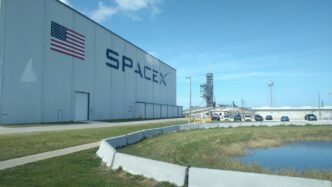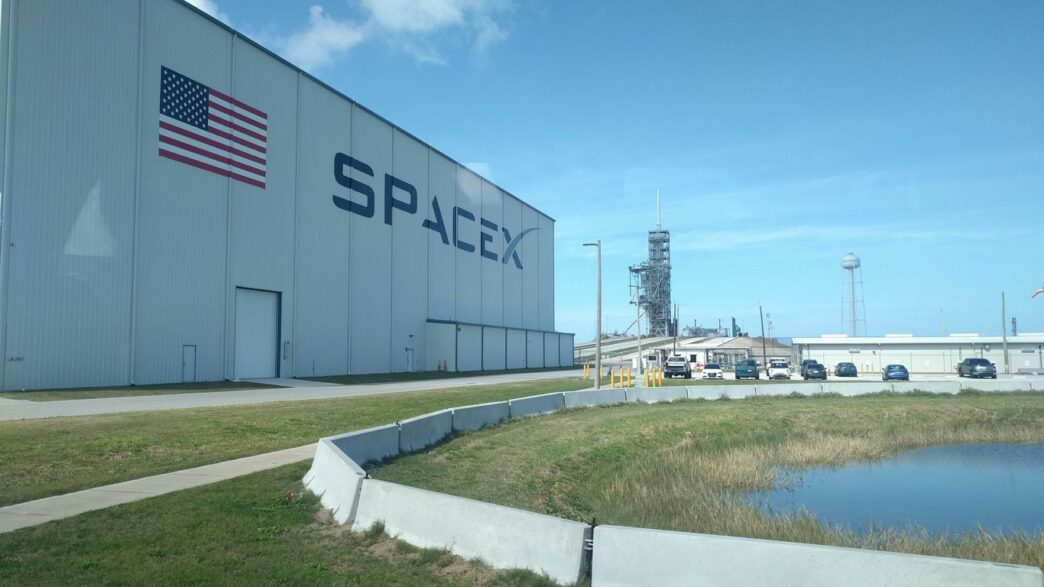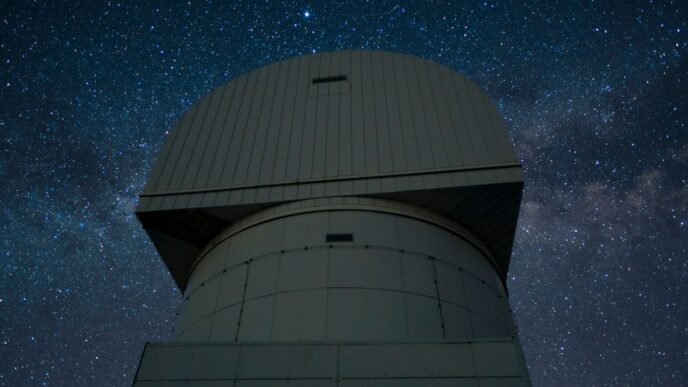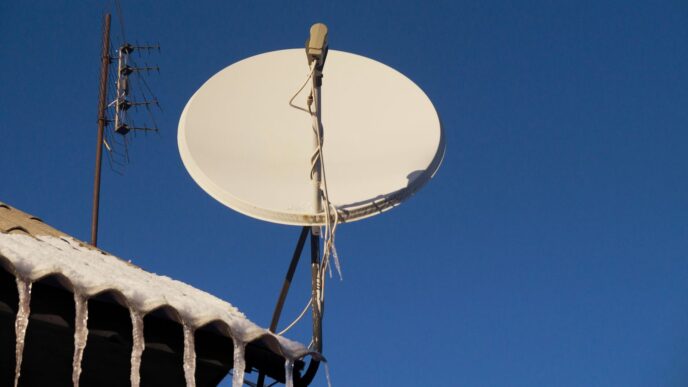SpaceX has been making headlines lately, but not just for its rocket launches. The company is now facing a set of fines from the FAA and EPA, sparking a lot of debate about how rocket companies are regulated. The story isn’t just about the money—it’s about safety, environmental rules, and whether the current system is keeping up with the pace of space innovation. Let’s break down what led to these SpaceX fines, how the company is fighting back, and what it could mean for future launches.
Key Takeaways
- SpaceX was fined over $600,000 by the FAA for using an unapproved launch control room and other safety violations during its 2023 launches.
- The EPA and Texas regulators also fined SpaceX for environmental violations related to water discharges at its launch site, raising concerns from local groups.
- Elon Musk and SpaceX strongly disagree with the penalties, calling them unfair and even threatening legal action against the regulatory agencies.
- Regulatory agencies say they are struggling to keep up with the fast growth of commercial space launches, which can lead to delays and stricter oversight.
- These fines and disputes might cause delays for SpaceX’s future launches and could shape how all space companies are regulated going forward.
Overview of Recent SpaceX Fines
The past year hasn’t been smooth for SpaceX when it comes to regulations. SpaceX was hit with a total of $633,009 in fines by the FAA for several violations tied to its summer 2023 launches. This set off a chain of debate, pushback from the company, and plenty of news headlines. Here’s a breakdown of what went down, how much was at stake, and how folks reacted.
Timeline of FAA and EPA Penalties
Getting the order of things right helps make sense of all the back-and-forth. Here’s how it all played out:
- June 2023: SpaceX used a not-yet-approved control room for an uncrewed satellite mission.
- July 2023: Another penalty hit when the company used a "rocket propellant farm" that hadn’t gotten FAA clearance.
- September 2024: FAA made the penalties public, giving SpaceX 30 days to contest them.
- Days later: SpaceX went public with a letter to Congress, blasting the FAA’s pace and focus.
Nature and Amount of the Fines
This wasn’t a single-incident slap on the wrist. SpaceX racked up a few separate violations, each carrying its own hefty price tag. Here’s how it adds up:
| Alleged Violation | Fine Amount |
|---|---|
| Unapproved launch control room | $175,000 |
| Failure to conduct required pre-launch safety poll | $175,000 |
| Unapproved rocket propellant facility | $283,009 |
| Total | $633,009 |
The FAA said its main concern was safety and following procedure — not just for SpaceX but across commercial spaceflight.
Public and Media Reaction to the Penalties
The news didn’t just land with SpaceX’s legal team — it sparked lots of response all over:
- Elon Musk fired back on social media, calling it "regulatory overreach" and hinting at a lawsuit against the FAA.
- SpaceX posted a public letter to Congress, saying the FAA wasn’t keeping pace with the industry and hinting that the fines might be retaliation or at least poorly-timed.
- Media coverage split down the middle: some sided with SpaceX, arguing that regulations are stalling innovation, while others said safety and rules are non-negotiable — especially when rockets are involved.
These penalties are just the latest spark in a bigger, ongoing feud between SpaceX and regulators. Whether all this drama leads to quicker approvals or just more gridlock is an open question for now.
Key Regulatory Violations Cited Against SpaceX
When those fines came down, a lot of people were left wondering—what, exactly, did SpaceX do to catch the FAA and EPA’s attention? Here’s a breakdown of the main issues regulators flagged over last year’s launches and pad activities.
Unapproved Launch Control Room Usage
SpaceX went ahead and used a new launch control room for a satellite mission in June 2023. The catch? They hadn’t received FAA approval for the facility. The agency says it’s not just a paperwork thing; control rooms need to pass safety checks to make sure everyone involved (and the public) are protected. For this violation alone, SpaceX was looking at a $175,000 fine. It seems there was some miscommunication—or at least, SpaceX claims not everything was clear.
Failure to Conduct Required Safety Polls
Another big point for the FAA involved procedures just before rocket launches. Normally, there’s a safety poll—basically, a round where all flight controllers confirm they’re ready and all systems are safe. SpaceX skipped this required poll before a launch, according to the agency, which flagged it as a significant breach. The summary:
- Skipping the required safety poll before launch
- FAA says this compromises safety oversight
- SpaceX disputes the necessity and clarity of the rule
That’s another $175,000 added to the list.
Environmental Compliance Concerns
On the environmental front, both the EPA and Texas Commission on Environmental Quality found issues tied to water discharges from the Boca Chica pad. The agencies say SpaceX violated the Clean Water Act during and after launches, leading to fines over $150,000. Some impacts that have worried folks near Starbase:
- Water runoff affecting local state parks and wildlife refuges
- Documented destruction of endangered shorebird nests during launches
- Ongoing lawsuits from conservation groups and Indigenous communities demanding more thorough reviews
Here’s a table of the cited fines:
| Violation | Agency | Fine Amount |
|---|---|---|
| Unapproved launch control room | FAA | $175,000 |
| Failure to conduct required safety poll | FAA | $175,000 |
| Unapproved propellant farm usage | FAA | $283,009 |
| Clean Water Act violations | EPA + TCEQ | $150,000+ |
Altogether, these violations racked up more than $600,000 in fines and sparked a pretty intense public battle between SpaceX and several government bodies.
SpaceX’s Response and Legal Challenge to the Fines
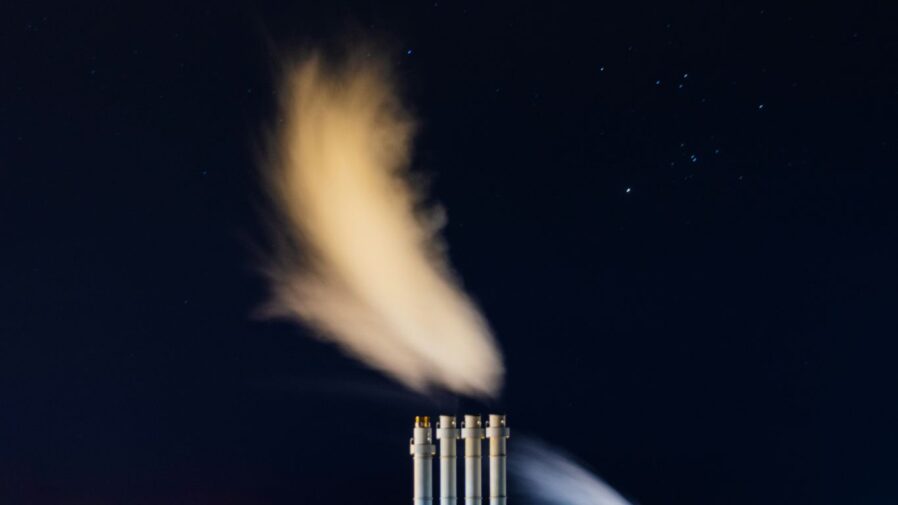
SpaceX has not just accepted the penalties from the FAA and EPA—it’s fired right back. The company’s reaction has been both public and fierce, challenging everything from the size of the fines to the way regulatory agencies operate. SpaceX has made it crystal clear: it does not agree with the accusations, and it’s not rolling over.
Public Letters to the FAA and Congress
- SpaceX published a stern letter addressed to the FAA and key Congressional leaders arguing that the fines were both unfair and possibly retaliatory.
- The letter points out that, for nearly two years, SpaceX has said the FAA cannot keep up with commercial space demands, slowing progress.
- Company officials stressed the point that delays in approval are hurting not only their own launches but also "national priorities" and American innovation, echoing themes seen before in the tech industry, such as in fintech competition and regulation.
Elon Musk’s Allegations of Regulatory Overreach
Elon Musk’s response has been loud and public, especially on social media:
- He accused the FAA of "lawfare," saying the agency uses excessive legal action to hold back progress.
- Musk claimed the fines were announced right after Congress started paying closer attention to FAA delays, suggesting the timing was suspicious.
- His argument rests on the idea that strict regulation is holding humanity back from space, and SpaceX is being unfairly targeted because of its rapid pace and national importance.
Plans to Sue Regulatory Agencies
SpaceX isn’t just stopping at public complaints—the company plans to fight in court.
- Elon Musk said SpaceX will sue the FAA for regulatory overreach. He’s used the phrase repeatedly, both in interviews and on X, his social platform.
- Company lawyers have already started breaking down each violation, presenting evidence they say shows the FAA either didn’t communicate clearly or didn’t follow its own rules.
- The legal strategy aims at not only overturning the fines but also forcing the agency to speed up how it handles licensing and approvals.
Table: SpaceX Actions in Response to Fines
| Action | Description |
|---|---|
| Public Letter to FAA & Congress | Criticized delays and claimed unfair targeting |
| Social Media Campaign | Elon Musk posts about regulatory hurdles |
| Legal Complaint | Preparing a lawsuit challenging regulatory overreach |
| Detailed Rebuttal | Point-by-point response to each alleged violation |
As this drama unfolds, both SpaceX and the regulatory bodies are under the microscope, and the outcome is still very much up in the air.
Role of Regulatory Agencies in SpaceX Fines
SpaceX has found itself in a tug-of-war with several regulatory agencies lately, especially over fines related to its recent launch activity. Here’s how different government bodies play their part.
FAA Oversight of Commercial Space Flights
The Federal Aviation Administration (FAA) is the main agency responsible for making sure all commercial space launches in the US are following the rules. Their job is to prioritize public safety and maintain orderly operations in this fast-changing field. The FAA’s process includes reviewing license applications, monitoring launches, and handling any possible violations. They can issue civil penalties—up to $100,000 for each rule broken, with extra charges piling up if violations continue every day (civil penalties up to $100,000).
A typical FAA launch oversight process covers:
- Reviewing and approving launch site and flight plans
- Certifying control rooms and systems
- Requiring safety polls and checks before each mission
- Investigating accidents or debris events, sometimes grounding rockets for months
EPA and TCEQ Actions on Environmental Violations
Besides FAA oversight, SpaceX must comply with environmental laws monitored by the Environmental Protection Agency (EPA) and the Texas Commission on Environmental Quality (TCEQ). These agencies watch for things like fuel spills, debris impact, and air pollution from rocket launches. Problems like using unapproved rocket fuel farms or failing to prevent local contamination trigger investigations and possibly more fines.
Key responsibilities of EPA and TCEQ include:
- Approving storage of rocket propellants and hazardous materials
- Inspecting launch sites for potential pollution
- Enforcing rules around contamination and waste management
Challenges Facing the Office of Commercial Space Transportation
Within the FAA, the Office of Commercial Space Transportation (often called AST) is the main group dealing with commercial space rockets. But they’re feeling the pressure. The AST has a limited staff and budget, which slows down license reviews and approval times. SpaceX has pointed out that AST struggles to keep up with the pace of private space launches. They say this sometimes leads to delays for projects and extra costs for companies eager to innovate.
Three issues the AST is wrestling with now:
- Limited resources for reviewing ever-growing launch applications
- Balancing traditional government caution with the pace of private industry
- Navigating pressure from both Congress and outspoken tech leaders
This back-and-forth over regulations, penalties, and delays isn’t likely to ease off soon. The way agencies adapt could shape the future of not just SpaceX, but the whole US commercial launch sector.
Impact of Fines on SpaceX’s Future Launches
Potential Delays in Launch Schedules
The recent fines landed at a tense time between SpaceX and federal regulators. Even small penalties can stack up into larger consequences, but what folks are mostly noticing is the direct impact on launch timing. After the FAA handed out the fines, SpaceX said the review process for launches, like the much-anticipated fifth Starship test, stretched months past their expected window. These drawn-out reviews can put a real dent in tight schedules. In one case, the Starship launch was delayed to October 2024 even though SpaceX had been aiming for a date months earlier. Now, with every extra box to check or report to file, the wait between launches only grows longer.
Changes to Compliance and Safety Procedures
With fines and delays, regulatory bodies like the FAA are demanding stricter procedures. This means new steps for safety checks, more paperwork, and closer tracking of launch protocols. After being hit for things like using an unapproved control room or missing out on a safety poll, SpaceX cannot cut corners. Here are a few changes that are expected to stick:
- Increased documentation for every step of launch prep
- Dedicated teams to double-check compliance with safety rules
- Routine training refreshers for launch staff
Agencies will expect more frequent reports and audits too. For a company like SpaceX that moves fast, slowing down to comply might be frustrating, but skipping the process is no longer an option.
Influence on National Priorities and Innovation
There’s a real debate now about how these fines, and the slow pace of regulatory approvals, could throw a wrench in national goals tied to space. SpaceX has called out the strain on regulatory resources and argued that these delays weaken both national priorities and American progress. If officials can’t speed up licensing, it could mean more bottlenecks for both government and private missions. Innovators might even look for looser regulations elsewhere or rethink which projects to tackle. That possibility could reshape how, and how fast, big ideas in space get off the ground.
| Launch | Planned Date | Actual Launch | Delay (Days) |
|---|---|---|---|
| Starship 5 | Aug 2024 | Oct 13, 2024 | 60+ |
All in all, these government fines are forcing SpaceX to rethink how it prepares for blastoff, deals with paperwork, and balances its quick-fire work with official compliance. And until something changes, slowdowns and safety checks look here to stay.
Broader Implications for the Space Industry
Strain on Regulatory Resources
The surge in commercial rocket launches has put a real squeeze on regulatory bodies. Agencies like the FAA’s Office of Commercial Space Transportation (AST) are stretched thin, with staffing and funding nowhere near what’s needed to handle the sixfold increase in launches over the past six years. Their annual budget is under 1% of the entire FAA’s budget. Here’s a quick look at the numbers:
| Year | Total Licensed Launches | AST Staff | Budget (approx.) |
|---|---|---|---|
| 2019 | 26 | ~160 | $42M |
| 2024 | 157 | ~160 | $42M |
It’s kind of wild to think they’re expected to review, approve, and monitor each mission—with barely any added staff or cash. That means:
- Possible bottlenecks in launch approvals.
- Less time for thorough investigations of safety or environmental concerns.
- Slower adaptation to increased launch complexity or frequency.
Growth in Commercial Launch Activity
Rocket launches used to be rare, big events. These days, it’s not unusual to read about several liftoffs in a single week, and companies like SpaceX are pushing the pace. Here are some real outcomes of this growth:
- More competition and innovation, driving prices down for satellite launches.
- An increase in new players—small startups are popping up alongside the big names.
- Greater economic activity around launch facilities and satellite operations.
But with all this growth comes higher expectations for oversight and coordination between agencies (think: FAA, EPA, and even local regulators).
Repercussions for Industry-Wide Safety Standards
Every fine or investigation—like those handed to SpaceX—sends a message across the industry. Here’s what might shake out:
- Tighter safety rules could be the new norm, even if it frustrates some industry leaders.
- Companies may need to invest more in compliance departments and software.
- The risk of accidents or environmental mishaps might drop in the long run, though short-term launch schedules could take a hit.
Nobody in the business wants a disaster on their hands—that would hurt everyone. If the commercial space sector wants to keep growing, it’s probably going to have to build a stronger partnership with regulators, even if that means a bit more red tape along the way.
Wrapping Up: What SpaceX Fines Mean Going Forward
So, after all this back-and-forth between SpaceX and the FAA, it’s clear that things are tense. The fines, which add up to over $600,000, aren’t just about paperwork—they’re about how fast the industry is moving and whether the rules can keep up. SpaceX says the FAA is too slow and maybe even playing politics, while the FAA insists safety has to come first, no matter what. Both sides have a point, honestly. SpaceX wants to launch rockets and push boundaries, but the FAA has to make sure nothing goes wrong for people on the ground or the environment. With lawsuits and public letters flying around, it’s hard to say who will come out on top. But one thing’s for sure: how this plays out could change how rocket launches are approved in the future. If things get smoother, maybe we’ll see even more launches. If not, delays and arguments might just become the new normal. Either way, it’s something to keep an eye on if you care about space, tech, or just watching big rockets take off.
Frequently Asked Questions
Why did SpaceX get fined by the FAA and EPA?
SpaceX was fined for several reasons. The FAA said SpaceX used a launch control room that wasn’t approved and skipped a required safety poll before a launch. They also used rocket fuel from a site that didn’t have the right permits. The EPA and Texas environmental officials fined SpaceX for letting water from their launch pad flow into nearby wetlands without the needed permits.
How much did SpaceX have to pay in fines?
SpaceX was fined $633,009 by the FAA for safety and licensing violations. The EPA and Texas Commission on Environmental Quality added more than $150,000 in penalties for environmental issues. Altogether, the fines total over $780,000.
What is SpaceX saying about these fines?
SpaceX disagrees with the fines and says the FAA and EPA are being unfair. The company claims that the agencies are slow to approve launches and that the fines might be revenge for SpaceX criticizing the way they work. Elon Musk, SpaceX’s CEO, even said they plan to sue the FAA for what he calls ‘regulatory overreach.’
Will these fines delay SpaceX’s future rocket launches?
The fines themselves might not cause delays, but the problems with getting launch approvals and the ongoing arguments with the FAA could slow down future launches. SpaceX says that waiting for approvals is already making it hard for them to stay on schedule.
How do these fines impact the whole space industry?
These fines show that as more companies launch rockets, there is more pressure on agencies like the FAA and EPA to keep up. If rules aren’t clear or approvals are slow, it can make it harder for companies to innovate and keep up with demand. It also means safety and environmental rules are getting more attention.
What changes might happen because of these fines?
SpaceX may have to change how it handles safety checks and environmental rules to avoid more fines. The FAA and EPA might also look at their own processes to see if they can review launches faster. The whole industry could see new rules or clearer guidelines to help avoid similar problems in the future.

